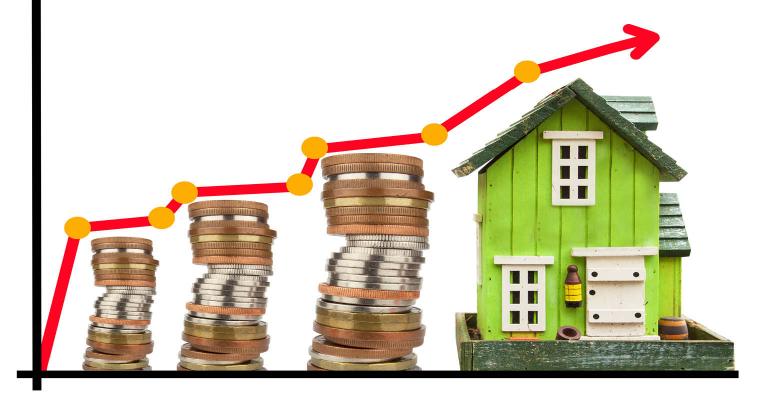(Bloomberg View)—Are poor Americans doing better than they used to, or worse? It’s hard to know, because so many important things in life -- social status, emotional health, human relationships -- can’t be measured. But in purely material terms, many things have improved.
Homelessness is down. Government assistance to families with children has lowered the official child poverty rate. Hunger has fallen as well. Though the country doesn’t do a great job at providing the poor with health care, things have improved marginally since the Affordable Care Act went into effect. What’s more, most of the poor now possess items that you would find in most middle-class households; according to a 2011 Census report, 53 percent of households in the lowest income quintile have a computer, 65 percent have a clothes dryer, and 38 percent have a washer, dryer, refrigerator, stove, dishwasher and a telephone.
However, there is at least one way in which poor American families are being increasingly squeezed -- the rent. A new research note from the Federal Reserve Board’s Jeff Larrimore and Jenny Schuetz of the Brookings Institution shows a combination of rising rents and falling incomes among the poorest fifth of households.
Though a substantial number of Americans of all income groups are homeowners, poor Americans are more likely to rent:
In real terms, the rent paid by low-income households has risen modestly -- about 9 percent. Meanwhile, real income for the bottom fifth fell by about the same amount. Squeezed between smaller paychecks and higher rents, the poor have less and less money each month to spend.
Larimore and Schuetz estimate that poor American households pay more than 55 percent of their earnings in rent, compared with less than 30 percent for households in the second-lowest quintile. Despite much public outcry over rising rents in the U. S., most non-poor households are still able to afford shelter without a severe economic burden.
More money spent on rent means less for everything else. Larimore and Schuetz find that the average household in the bottom fifth has only $476 to spend every month after paying rent:
This is down from about $600 a month at the turn of the century, in inflation-adjusted terms.
Imagine having to feed and clothe a family, commute to and from work, and keep the heater running on $476 a month! Fortunately, that number doesn’t include government assistance. Schuetz estimates that a low-income household may also receive about $333 a month in food stamps and $417 a month in earned income tax credits. That’s in addition to other benefits they may receive, such as health care, child-care assistance, unemployment insurance, Social Security disability payments and others.
Those programs can and should be increased. But as Schuetz notes, those big rent burdens harm poor households in ways not reflected in their cash spending. When you pay more than half of your income in rent, even a small or temporary dip in earning can be enough to put you out on the street. As Harvard University sociologist Matthew Desmond documented in his book “Evicted: Poverty and Profit in the American City,” the experience of being kicked out of one’s home is a shattering one -- and, sadly, one that is increasingly common. It imposes huge costs on the family being evicted -- they have to find temporary housing, find a new place to live, pay the cost of moving, and establish new commuting and shopping patterns, all while either holding down a job or searching for one.
Small wonder, then, that lack of affordable housing leaves permanent scars on children who experience it. Having a secure place to sleep is one of the most basic human needs -- it has not changed since the first caveman crawled under a rock to escape the rain.
So how can the U.S. solve the housing problem for its poorer citizens? Schuetz suggests expanding government rental assistance, which is currently not distributed very widely. That’s a good idea, but it’s important to remember that giving more poor people housing vouchers will tend to raise rents overall -- some of the benefit of government assistance will accrue to landlords.
Another idea is to build more housing. Zoning and other development restrictions should be relaxed. Incentives should also be put in place to encourage smaller units. This supply-based policy would complement the demand-based measure of better housing subsidies, giving poor Americans more places to live, and helping them pay for those dwellings.
A third component of reform should directly attack the harms of housing insecurity. Eviction should be restricted. A simple idea is to make landlords give tenants a much longer notice before evicting them. Now, most U.S. states allow landlords to evict tenants for nonpayment of rent after just a few days. If landlords had to give a longer notice -- perhaps a month of lead time -- it would shift some risk to the property owner, and give poor families time to find new arrangements. Landlords would respond to that risk by increasing rents, of course, but with eviction protections a rental increase is less dangerous.
So in order to improve the lives of the country’s poor, there should be more focus on housing. Little action is likely at the federal level, but state and local governments can do a lot to help their least advantaged citizens have an easier time keeping a roof over their heads.
This column does not necessarily reflect the opinion of the editorial board or Bloomberg LP and its owners.
Noah Smith is a Bloomberg View columnist. He was an assistant professor of finance at Stony Brook University, and he blogs at Noahpinion.
To contact the author of this story: Noah Smith at [email protected] To contact the editor responsible for this story: James Greiff at [email protected]
FOOTER
For more columns from Bloomberg View, visit Bloomberg view
COPYRIGHT
© 2017 Bloomberg L.P

